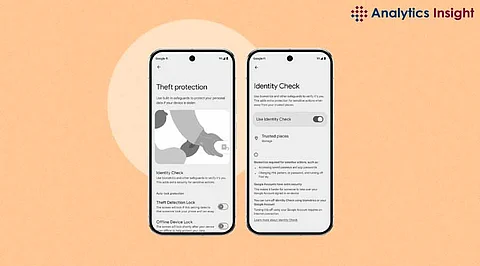

Google recently integrated a more advanced digital identity management feature on Android that improves user identity management. This enhancement is in sync with Google's drive to improve user security, streamline interactions, and give users better information control.
Google’s new identity feature for Android Google draws and stores an ID image and allows users to manage and share it on their mobile phones. Google's new identity feature for Android improvement confronts the increasing demand for easy and efficient digital identity processes prioritising user privacy.
Data from Statista indicates that over 70% of people on Earth currently use a smartphone for virtually everything. With that wide audience, the new feature could reshape the digital Android security market.
Security is still a major concern with this launch. Users' faces and fingerprints allow access to confidential documents, ensuring that only authorised personnel can utilise them. Furthermore, Google has added encryption from one end to the other to shield data from unwarranted access while in transit.
According to Verizon's report, 86% of data breaches involve unauthorised access. Google's focus on encryption and biometric identification makes this feature a good step toward mitigating these concerns.
This new tool focuses on more than security; it focuses on effortlessness. It provides users with a complete solution for storing and retrieving identification documents, including driver's licenses, health cards, or school IDs. This feature reduces the number of physical cards people must carry and minimises the chances of important document loss.
Market analysts project that by 2025, more than half of worldwide online transactions will be processed by digital wallets. Google's addition significantly boosts this shift towards digital.
Google has empowered users regarding the identity they share on the internet. This feature also allows users to share data selectively when presenting an ID at an airport or verifying age for services online. This type of privacy control feature is selective data sharing and reinforces privacy.
Cisco's survey indicates that 84% of consumers demand more privacy regulations regarding their data. Google has taken the right direction by conforming to this demand.
The first phase of the rollout is expected to begin in early 2025, focusing on select locations and devices. It is highly likely to become worldwide by the end of that year. To support this launch, Google has formed strategic alliances with government and business partners, which will help facilitate broader adoption and integration of the feature. As 2025 approaches, stakeholders and users are eager to see how this initiative develops.
Google's new identity feature for Android is a significant advancement in modernizing security. It sets an example of how embracing technology can enhance privacy in today's world. By collaborating with industry leaders and government agencies, Google aims to ensure that this feature is widely adopted.
This technology update positions Android as a leader in security and user-centered technology, effectively addressing contemporary challenges related to protecting individual privacy and identity.
